‘I was born in Manchester and when I was growing up I said to my father “why did you bring us here to this place where it rains all the time?”. Did you know that’s why they call it Rainchester. Don’t you worry about Storm Dennis, there is a storm here everyday.’
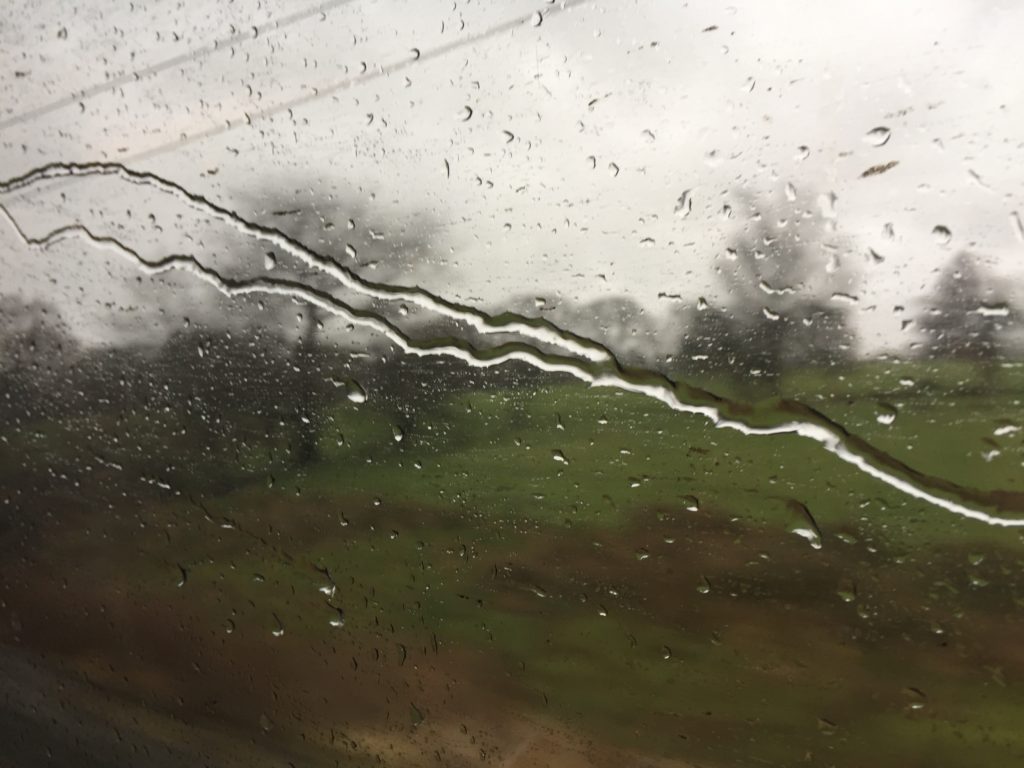
Never mind putting a spin on a cricket ball, the Uber driver who took us to our daughter at her University of Manchester Halls clearly liked to spin a yarn.
He continued: ‘My father said: “Well, if you don’t like it, why don’t you go back to Pakistan”. So I did. When I was 22 I went to Kashmir and it was so beautiful. I played cricket every day, every single day. For three months it was hot. Day after day it was hot. Fantastic. And then after three months it was still hot every day. You can escape the rain but you can’t escape that heat.’
So he returned to Manchester and here he has remained. ‘Yes, I love this place, I love the students, they are so carefree, so carefree until third year when they are always needing rides to the printer for the 15,000 word dissertation,’ he said, as he pointed out Factory, the infamous club where he is often called to collect students at all times of the day and night.
After recommending where we should eat – the best ever fried chicken from Babylon on Oxford Road or Mughli, an old school restaurant on the Curry Mile – and pointing out the hospital in case we should need one, he dropped us at the University Halls.
Finding Utopia
Manchester certainly does things differently. Although Storm Dennis did not seem to hit the city too badly, it was wet, and so a visit to the wonderful red brick Whitworth Art Gallery, which exists ‘for the perpetual gratification of the people of Manchester’ took up the better part of the day. Upstairs was the ‘Utopias’ exhibition, which raised the question of what the word from the Greek ou-topos meaning ‘no place’. “A perfect nation can never be realised, because it is different for everybody – it is nowhere and yet everywhere” is a line from the exhibition blurb. How very pertinent in the Britain of today.
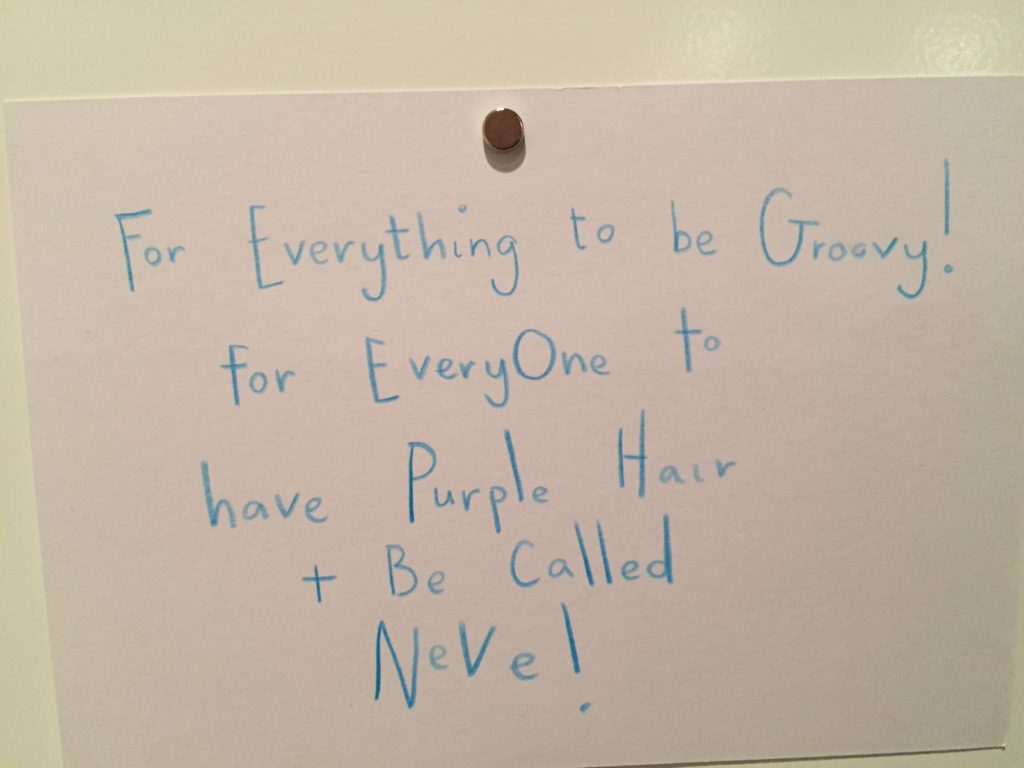
Someone’s idea of Utopia – kind of funny for one reason and another
Downstairs there was an exhibition of some very fine drawings and prints by Paul Cezanne (1839–1906) and copies of the bathers by the UK contemporary artist Michael Landy. Have to say I also loved the wallpaper. The Whitworth has around 5,000 examples which were gifted to the gallery in the late 1960s by The Wall Paper Manufacturers Ltd. The company had controlled the wallpaper industry since the latter part of the 19th century and the Whitworth, reads the gallery’s website, ” felt like a fitting home for the products of an industry whose mechanisation, like that of textiles, was pioneered in the North West”.
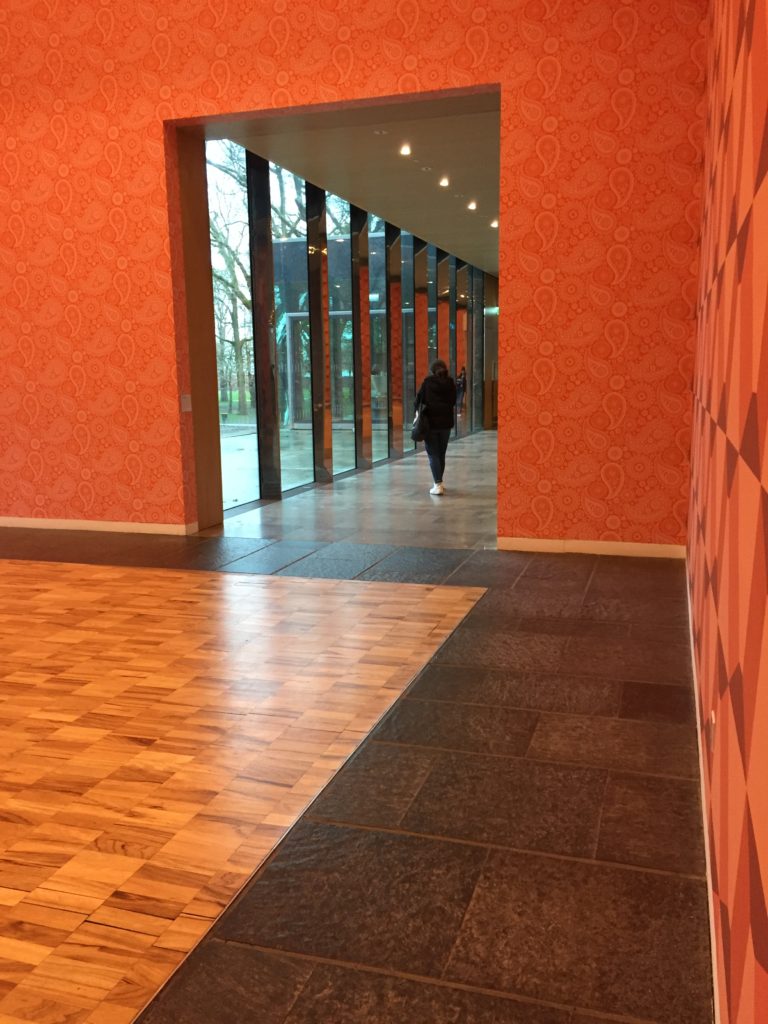
Now, I know from my work at EyeforTravel, which has recently been acquired by Thomson Reuters, that ‘alternative lodging’ – in other words booking an Airbnb – is all the rage. But we got a surprisingly reasonable deal for a family room at the gem that is the Principal, an IHG hotel just ten minutes walk from the train station.
Once the headquarters of The Refuge Assurance Company, which opened in 1890, this redbrick Grade II listed building now offers hospitality at its finest. It does, as the bronze plaque, embedded in the entrance hall floor with words of the record label owner, radio and TV presenter media Tony Wilson says, ‘do things differently’.
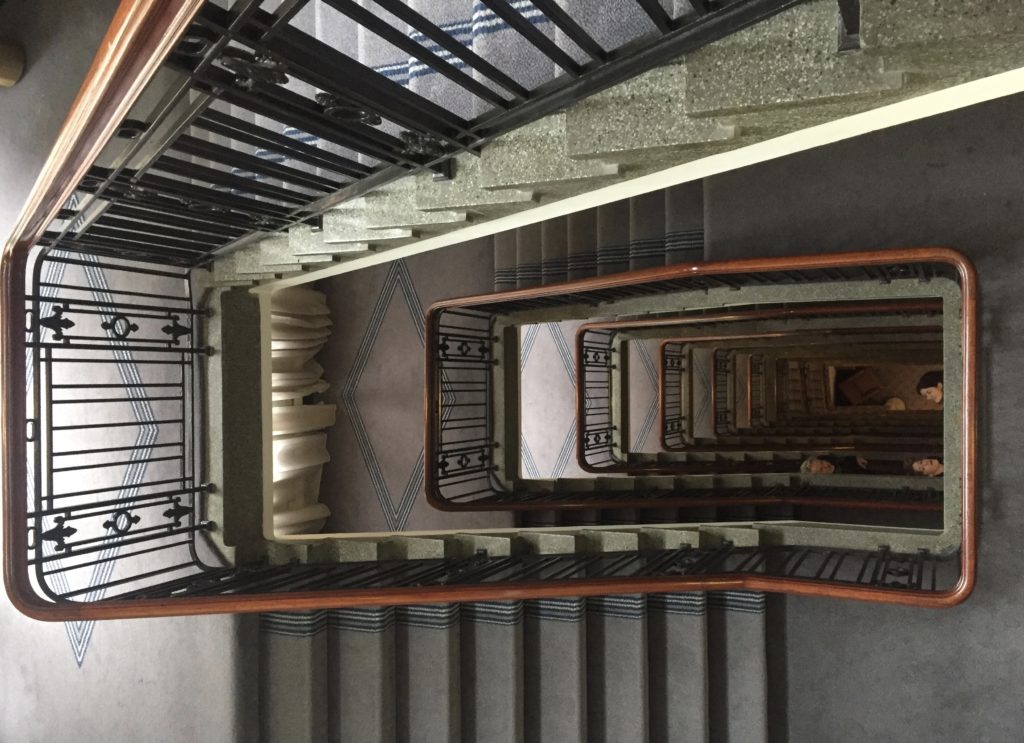
Unfortunately the hotel’s iconic restaurant, The Refuge, was fully booked – ‘all tables for two’ the concierge told us, for those belatedly celebrating Valentines Day. However, he recommended a traditional Italian up the road where we were served by a Sardinian who told us that he had come to the UK at 18 not able to speak a word of English. His restaurant work started in London but after finding the capital a little too fast-paced, he headed north, first to Newcastle. If learning plain English was hard enough, understanding the Jordies proved way too difficult.
‘One day a lady asked me for a coffee, and I did not understand what she said, so I took her an Americano, a Flat White and a Cappuccino and said ‘sorry ma’m I didn’t understand, so I brought all three’. That job didn’t last, so he headed to Birmingham for a short stint and then on to Manchester.
‘I love this place so much. Everybody always has a time for a chat. It’s the greatest city in the world,’ he said.
If Manchester would have him, he was here to stay. Then, on a napkin, he wrote down some places in the south of Sardinia that he said we should visit. ‘It is a great place for a holiday but you wouldn’t want to live there,’ he said. If we are lucky enough to make it there some day, I hope we won’t have to queue too long at the border!
Heading Home
The rest of the weekend involved a trip to Home, the 2015 development that is well, home, to cinemas, theatres and contemporary art. We ambitiously thought we get tickets for the Korean film Parasite that just made history by winning the Oscars but it was fully booked. And so we walked.
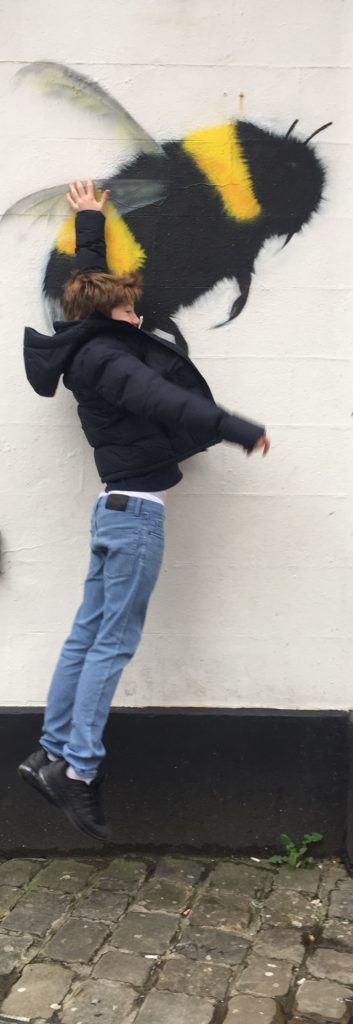
Before heading back to the train station, we returned to the Principal to collect our bags. With an hour to kill we had a coffee in the Green Room, a light and airy space at the centre of the hotel Refuge. At the same price as you would pay for a coffee in a Costa or Cafe Nero, you have to wonder why you would ever drink coffee anywhere else in Manchester.
Until the end of April, the hotel is also hosting an exhibition that features the photographs of Rob Bremner, Richard Davis and Peter Walsh which “capture the very essence of what made Britain one of the world’s most culturally diverse countries”. As a migrant to the UK, I can’t help thinking about Priti Patel’s new plans for immigration, and what the Britain of the future will look like.
It feels like there is a lot of love here and there are also a lot of laughs. ‘On the sixth day,’ read the words on the minibar fridge, ‘God created MANchester.’
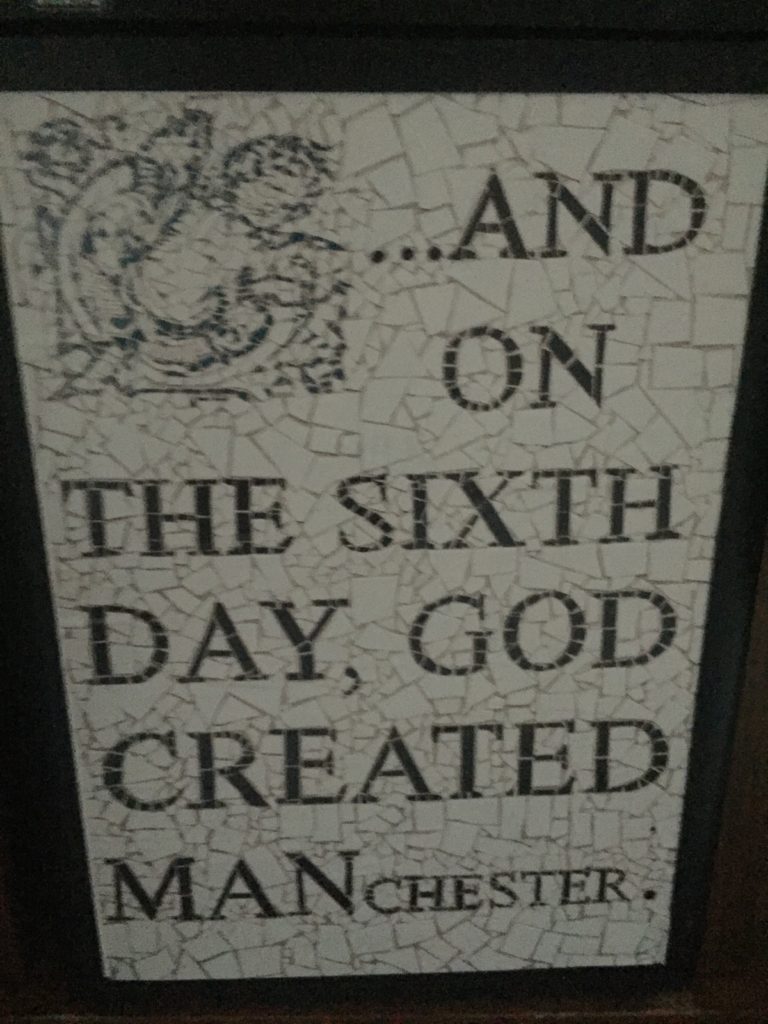
It was just an overnight stay but with a daughter already looking pretty at home in this cool city, I suspect we will be back. In fact, she might even stay forever. As the Pakistani-British Uber driver said: ‘You know those students. They love it so much here, sometimes they never leave.’
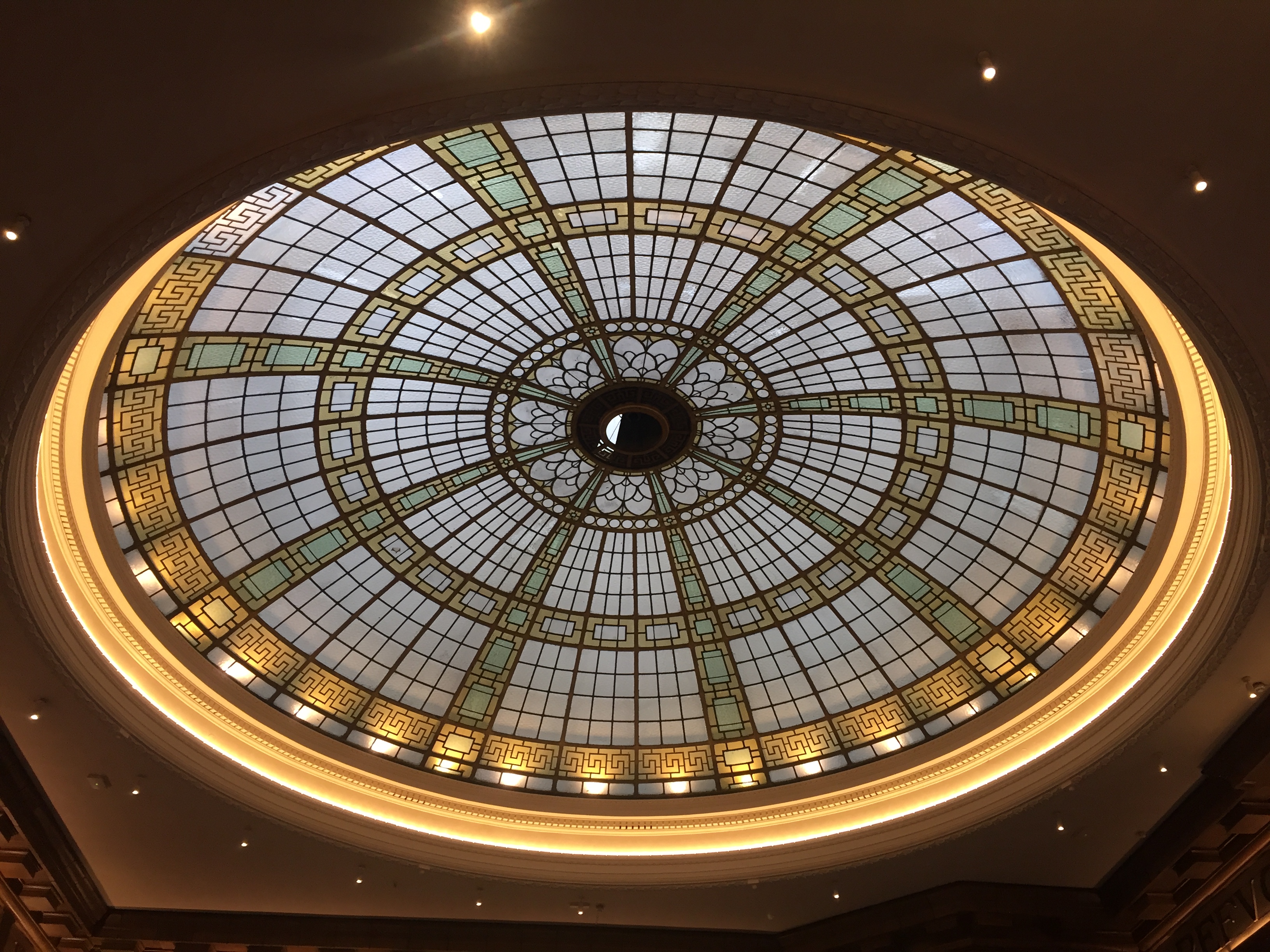
So good to see you in Print Pam😁